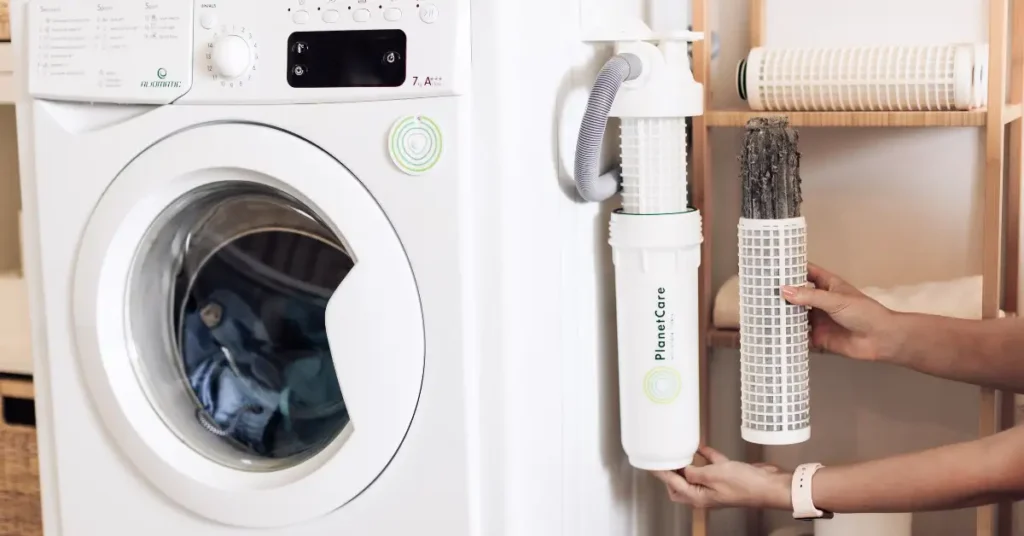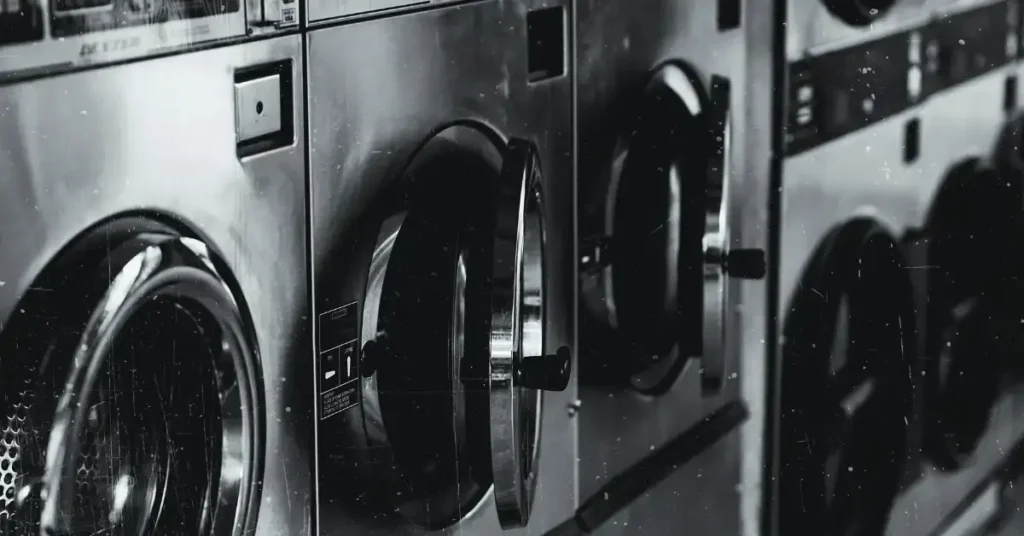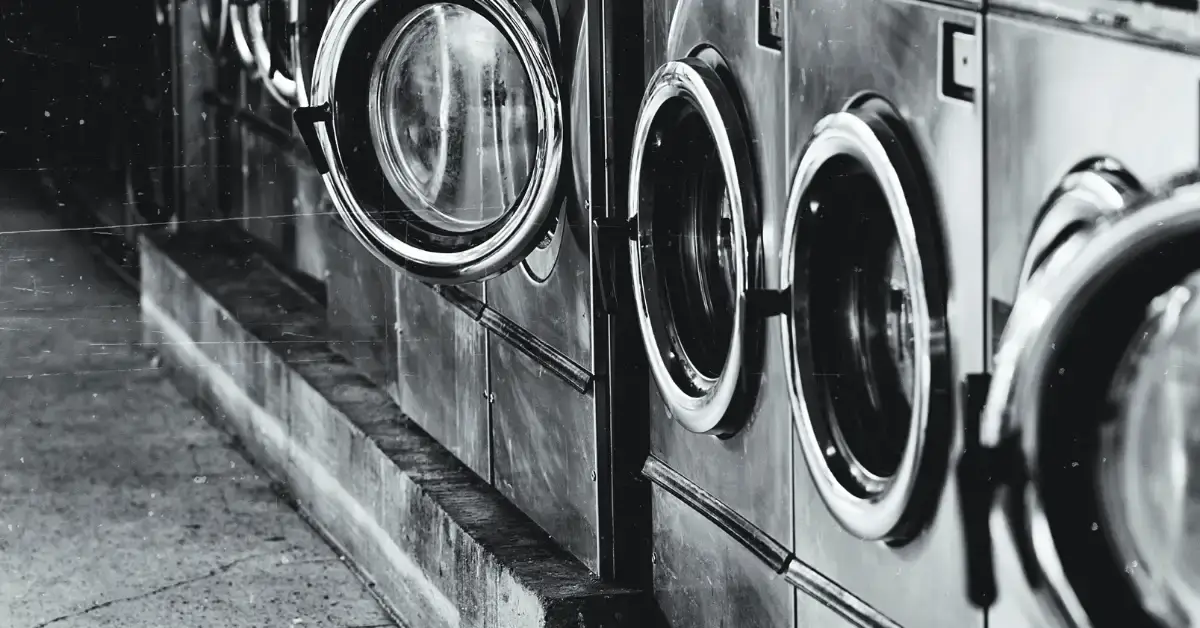Washing machines play a pivotal role in our everyday routine. They aid in maintaining the cleanliness and freshness of our clothing. Nevertheless, as time passes, washing machines may encounter a buildup of a substance known as scrud. Scrud is a mixture of detergent, fabric softener, and lint that can amass within the drum, rubber seal, and filters of your machine. This buildup can lead to unpleasant odors, leave unsightly brown stains on your garments, and potentially harm your washing machine.
How to Get Rid of Scrud in Washing Machine
Understanding what scrud is and how to prevent it from forming is crucial to keep your washing machine running smoothly and your clothes looking their best. In this article, we will explore the causes of scrud formation, how to identify it in your washing machine, and most importantly, how to eliminate it. We will provide you with some easy-to-follow steps to remove scrud and keep your washing machine in tip-top shape.
- Scrud is a buildup of soap, fabric softener, and lint that can accumulate in your washing machine’s drum, rubber seal, and filters.
- Regular cleaning of your washing machine drum, rubber seal, and filters can help prevent scrud buildup and extend the life of your machine.
- Dissolving dishwasher tablets or using citric acid are effective ways to eliminate scrud from your washing machine.
Understanding Scrud
Have you ever noticed a strange, slimy substance in your washing machine? If so, you may have encountered scrud. Scrud is a buildup of detergent, fabric softener, and other laundry additives that can accumulate in your washing machine over time. It can also be caused by hard water, which contains high levels of minerals that can react with laundry products to create a sticky residue.
Scrud can be unsightly and unpleasant, but it can also have a negative impact on your washing machine. Over time, it can clog the machine’s pipes and filters, reducing its efficiency and causing it to break down. It can also leave stains on your clothes and give them an unpleasant odor.
One of the main causes of scrud is using too much detergent. While you might think that more detergent equals cleaner clothes – to be honest, we did that as well for a way too long time – using too much can actually do more harm than good. Over time, the excess detergent can build up in the machine, creating a breeding ground for bacteria and mold. Fabric softener can also contribute to the buildup of scrud.
Hard water can exacerbate the problem by causing a chemical reaction that turns laundry products into a sticky residue. If you live in an area with hard water, you may need to take extra steps to prevent scrud buildup in your washing machine.
To prevent scrud, it’s important to use the right amount of laundry products and to clean your washing machine regularly. You can also try using products designed to prevent or remove scrud buildup, such as citric acid or dishwasher tablets. By taking these steps, you can keep your washing machine running smoothly and ensure that your clothes come out clean and fresh every time.

How to Eliminate Scrud
Are you tired of dealing with scrud in your washing machine? Scrud is a buildup of detergent, fabric softener, and other residues that can cause unpleasant odors, stains, and even damage to your appliance. Fortunately, there are several effective ways to eliminate scrud and keep your washing machine working efficiently.
Using Vinegar
Vinegar is a natural and inexpensive way to eliminate scrud from your washing machine. Simply add two cups of white vinegar to the detergent dispenser and run a hot water cycle. This will help dissolve any buildup and leave your washing machine smelling fresh.
Using Baking Soda
Baking soda is another natural and effective way to eliminate scrud. Add half a cup of baking soda to the detergent dispenser and run a hot water cycle. This will help neutralize any odors and remove any buildup in your washing machine.
Using Citric Acid
Citric acid is a powerful cleaner that can help eliminate scrud from your washing machine. Dissolve two 75g cans worth of citric acid in a bucket of hot water, pour it into the machine, and run the longest, hottest cycle. This will help dissolve any buildup and leave your washing machine looking and smelling like new.
Using Dishwasher Tablets
Dishwasher tablets are a quick and easy way to eliminate scrud from your washing machine. Dissolve two to three dishwasher tablets in a bucket of hot water, pour it into the machine, and run the longest, hottest cycle as well. This will help dissolve any buildup and leave your washing machine looking and smelling fresh.
By using these simple and effective methods, you can eliminate scrud from your washing machine and keep it working efficiently. Whether you prefer natural remedies like vinegar and baking soda or powerful cleaners like citric acid and dishwasher tablets, there is a solution that will work for you. Try these methods today and enjoy a cleaner, fresher washing machine!

Causes of Scrud Formation
Washing machines are a great convenience, but they can also be a breeding ground for scrud, a buildup of lint, dirt, grease, and other substances found in detergents and fabrics. Scrud can cause unpleasant odors and stains on your clothes, and even damage your washing machine. Understanding the causes of scrud formation can help you prevent it from happening in the first place.
Detergent Residue
Using too much detergent, or using the wrong type of detergent, can leave behind residue that can contribute to scrud buildup. Detergent residue can also trap dirt and other particles, making it harder to remove them from your clothes. To prevent detergent residue, use the recommended amount of detergent for your machine and the type of load you are washing. Consider using a high-efficiency detergent, which is designed to dissolve more easily in water and leave less residue behind.
Fabric Softener Buildup
Fabric softeners can leave behind a waxy buildup that can contribute to scrud formation. Over time, this buildup can trap dirt and other particles, making it harder to remove them from your clothes. To prevent fabric softener buildup, use the recommended amount of fabric softener for your machine and the type of load you are washing. Consider using a fabric softener alternative, such as vinegar or baking soda, which can help soften your clothes without leaving behind a residue.
Hard Water and Soap Interaction
Hard water, which is water that contains high levels of minerals such as calcium and magnesium, can interact with soap to create a residue that can contribute to scrud formation. This residue can also trap dirt and other particles, making it harder to remove them from your clothes. To prevent hard water and soap interaction, consider using a water softener, which can help reduce the levels of minerals in your water. You can also use a laundry detergent that is specifically designed for hard water.
By understanding the causes of scrud formation, you can take steps to prevent it from happening in the first place. Regular cleaning of your washing machine drum, rubber seal, and filters can also help prevent scrud buildup and extend the life of your machine.
Identifying Scrud in Your Washing Machine
If you notice brown stains, unpleasant odors, or a slimy substance in your washing machine, you may have scrud buildup. Scrud is a combination of soap scum, dirt, and other particles that accumulate in your washing machine over time. It can be harmful to your machine and your clothes, so it’s important to identify and remove it as soon as possible.
Brown Stains and Flakes
One of the most obvious signs of scrud buildup is brown stains and flakes on your clothes. These stains can be difficult to remove and may even damage your clothing. If you notice brown stains or flakes on your clothes after washing, it’s likely that you have scrud buildup in your washing machine.
Unpleasant Odor
Another sign of scrud buildup is an unpleasant odor coming from your washing machine. This odor can be caused by the bacteria and mold that thrive in the warm, damp environment of your washing machine. If you notice a musty or sour smell coming from your washing machine, it’s likely that you have scrud buildup.
Slimy Substance
A slimy substance in your washing machine is another sign of scrud buildup. This substance can accumulate in the drum of your washing machine and can be difficult to remove. It’s important to clean your washing machine regularly to prevent the buildup of this slimy substance.
To prevent scrud buildup, it’s important to use the right amount of detergent and to clean your washing machine regularly. Using too much detergent can contribute to the buildup of scrud, so it’s important to follow the manufacturer’s instructions for the amount of detergent to use. Regular cleaning can also help prevent the buildup of scrud in your washing machine.
In conclusion, identifying scrud buildup in your washing machine is important to keep your machine and clothes clean. Brown stains and flakes, unpleasant odors, and a slimy substance are all signs of scrud buildup. By following the manufacturer’s instructions for detergent use and regularly cleaning your washing machine, you can prevent the buildup of scrud and keep your machine running smoothly.
And if you want to clean your acrylic sweater after you got rid of the rug in your washing machine, check out our guide on how to wash your acrylic sweater safe and properly.

FAQ
How do I get rid of brown gunk in my washing machine?
Brown gunk in the washing machine may be caused by residue from detergents or fabric softeners. Run a cleaning cycle with vinegar or specialized washing machine cleaner.
Why am I getting gunk in my washing machine?
Gunk in the washing machine can result from inadequate cleaning, using too much detergent, or using low-quality detergent.
Is it safe to use vinegar in washing machine?
Using vinegar in the washing machine is generally safe and can help remove odors and residue. But don’t forget to follow proper usage guidelines to prevent any damage.
If you liked this blog article about the topic: How to get rid of Scrud in Washing Machine, don’t forget to leave us a comment down below to tell us about your experience.


